Brazilian Butt Lift in Tunisia
Search and Compare the Best Clinics and Doctors at the Lowest Prices for Brazilian Butt Lift in Tunisia
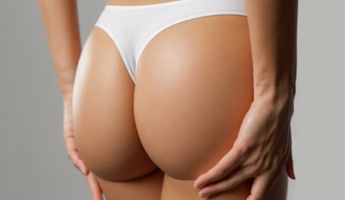
Find the best clinics for Brazilian Butt Lift in Tunisia
With Medijump you can browse 8 facilities offering Brazilian Butt Lift procedures in Tunisia. The cheapest price available is $1,578 in Tunis. And for the cheapest price globally, prices start from $113 in United Kingdom.
Brazilian Butt Lift in Tunis
Price: $ 1,578
Brazilian Butt Lift in Sousse
Price: $ 1,801
United Kingdom offers the best prices Worldwide
Price: $ 113
From 4 verified reviews
Samir Derradji, 18 March 2018
Hello I follow sick dalger Algeria I ask you a preforma for an opairation on the colon .Thank you
From 11 verified reviews
Craig Mills, 30 July 2019
Excellent private health care looked after my soon after he drowned in sahara beach hotel this month would definatly recommend being cared for there staff were amazing
From 37 verified reviews
Saoussen Saidani, 13 June 2020
My 12 year old daughter Lina has had surgery Pancreas tumorHeavy Operation which went very wellI thank all the staff of the Pasteur clinic for their hospitality and their hygiene ...I thank the doctors who attended the operation and in particular the surgeonAYADI Sofiene who accompanied us from the start for his professionalism as well as DR Walid Miraoui. The discovery of this tumor is done in a very short time a week to manage allThe support of Surgeon Ayadi Sofiene was really perfect as a parent we were reassured and above all in confidence.And especially I thank them for the moral support of My Daughter Lina who kept the smile until the end and who It is found in Total confidenceThank you so much for saving our childMr er Mrs Saidani
From 11 verified reviews
Toumi Mondher, 02 April 2019
The Department of Extraction and Billing at the Center of Imaging and Radiology, two patients, treated me with a reputation as a Tunisian clinic, and I bear the responsibility to speak this
From 9 verified reviews
Ibtyhel Ben bassine, 19 April 2019
I slept my little girl on Thursday, March 8, 2018, was at Top, my gygy, the nurses .... they put me in a calm and clean environment with a service of excellence .. thank you prts and especially pr Dr. hichem
Clinique Taoufik, can be found in Boulevard Mohamed Bouazizi, Tunis, Tunisia and offers its patients Brazilian Butt Lift procedures as well as 225 other procedures, across 24 different procedure categories. At present, there is no pricing information for Brazilian Butt Lift procedures at Clinique Taoufik. The pricing information is quite specialised, so it's only available on request, and the average price is around ฿72,774. Many medical professionals work at the Clinic, with 10 in total, and Clinique Taoufik is accredited by just one known accreditations institute, ISO 9001:2008
Clinic Apollon, can be found in Boulevard Mohamed Bouazizi, Tunis, Tunisia and offers its patients Brazilian Butt Lift procedures as well as 90 other procedures, across 1 different procedure categories. At present, there is no pricing information for Brazilian Butt Lift procedures at Clinic Apollon. The pricing information is quite specialised, so it's only available on request, and the average price is around $2,022. A small team of medical professionals undertake all procedures at the Clinic, with 2 in total, and Clinic Apollon is not accredited by any recognised accreditations institutions.
Cosmeticare Travel, can be found in Boulevard Mohamed Bouazizi, Tunis, Tunisia and offers its patients Brazilian Butt Lift procedures as well as 34 other procedures, across 4 different procedure categories. At present, there is no pricing information for Brazilian Butt Lift procedures at Cosmeticare Travel. The pricing information is quite specialised, so it's only available on request, and the average price is around $2,022. Currently, there's no information available about the doctors at the Hospital, and Cosmeticare Travel is not accredited by any recognised accreditations institutions.
- Home
- Tunisia
Compare Before & After Photos of _procedure_photos.phpBrazilian Butt Lift
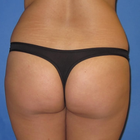

Front view
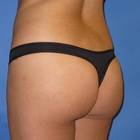
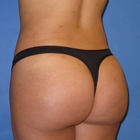
Half-side view
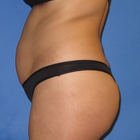
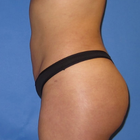
Full-side view
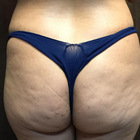
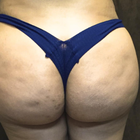
Front view
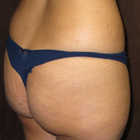
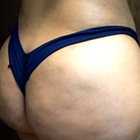
Half-side view
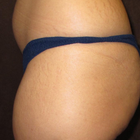

Full-side view
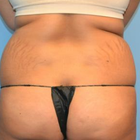

Front view
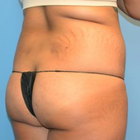
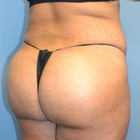
Half-side view
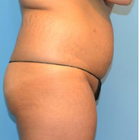
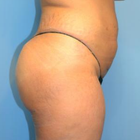
Full-side view
WHY US?
At Medijump, we're making medical easy. You can search, compare, discuss, and book your medical all in one place. We open the door to the best medical providers worldwide, saving you time and energy along the way, and it's all for FREE, no hidden fees, and no price markups guaranteed. So what are you waiting for?

Free

Best Price

Widest Selection

Risk-Free
What you need to know about Brazilian Butt Lift in Tunisia
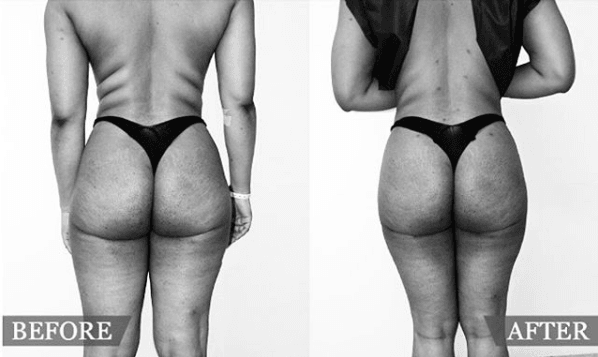
The Brazilian Butt Lift is a specialized fat transfer procedure that augments the size and shape of the buttocks without implants (with implants is the more traditional Butt-Lift procedure). A plastic surgeon first performs liposuction to remove fat from other areas of the body (often the stomach, hips, or thighs). These fat cells are then cleansed before being injected that into the buttocks at different depths for a more natural look and feel.
This plastic surgery procedure allows for perfectly shaped and round buttocks. It is most common among women, as plump and well-toned buttocks can vastly complement the physical appearance. Different fat transferring techniques are used to transfer adipocytes in your buttocks to give them a fuller appearance. A specialized surgeon removes excess fat cells from certain fat-rich areas of your body and injects them into your buttocks to augment them. It has a double advantage, as the donor site loses fat and becomes thin whereas the recipient site becomes plump. Aging and genetics can be the cause of flat butts.
Remember! Not everyone is a good candidate for this procedure. A number of factors should be considered before going for the surgery. Share your medical history with your potential surgeon and discuss your desired results, cost, risks, success rate, recovery time, aftercare, pros and cons of the surgery with the surgeon, and then go for it.
What is the cost of Brazilian Butt Lift in Tunisia?
The expense of the Brazilian Butt Lift in Tunisia tends to diverge significantly owing to a range of influencing factors. A combination of aspects like the complication level and length of the process, the proficiency and competence of the surgeon, along with other correlated medical expenses such as anesthetics or operating room charges contribute to this cost variance. It's beneficial to understand that the costs generally comprise fees for pre and post-surgical care.
In particular scenarios, the final cost could elevate if extensive liposuction is required for fat transfer. The volume of fat required for transfer, the sites from where the fat gets extracted, and the count of areas undergoing treatment might also impact the price. For this reason, there might be a minor irregularity in costs amongst clinics even within the same vicinity.
As this procedure is predominantly regarded as cosmetic, it isn't typically covered by insurance offerings. Consequently, full payment responsibility typically falls to the patient. Many surgical centers and surgeons may extend financing alternatives or installment deals to render the procedure widely accessible to an array of patients.
What does a Brazilian Butt Lift Procedure Involve?
The procedure begins with applying general anesthesia along with intravenous sedation. After this, the surgeon marks the places which need to be augmented with the surgical marker. Points are marked along which the fat is to be injected into your buttocks. Fat is obtained from the abdomen and flanks. The donor site is sterilized and the excessive fat is removed through liposuction. A cannula is inserted through small incisions and fat cells are collected in a specialized container. This fat is purified before injecting it into the recipient site. The excessive fluid is removed from it and sterilization reduces the chances of infection. Small Incisions of diameter 2-3mm are applied on your buttocks through which fat cells are injected. These incisions are given along creases or at places where they are least visible. After the procedure is completed, sutures are used to close the incisions and sterile tape is applied to the wounds.
How Long Should I Stay in Tunisia for a Brazilian Butt Lift Procedure?
It is generally an outpatient procedure and takes 1-2 hours, after which you can either be discharged on the same day or an overnight stay in the hospital is usually advised, depending upon your physical state. Your health conditions are monitored and you are allowed to leave if everything is fine. Still, you will have to stay in Tunisia for at least 14 days for follow up checks. During this period you are kept under observation, stitches are removed after and you're allowed to travel home.
What's the Recovery Time for Brazilian Butt Lift Procedures?
After this operation, you are not allowed to sit or lie with your whole weight on your buttocks for at least 2 weeks. You'll experience moderate pain during the recovery period which is controlled through painkillers. There is inflammation and bruising around the operated area, but this swelling subsides gradually in a few days. Do not drive for at least 6-8 weeks as it requires you to sit for a longer period of time. Normal activities associated with sitting and lying can be restarted after 8 weeks. You can start your norman routine after 10 to 14 days. A total of 6 months are needed for the complete results to show up.
After the initial healing, you may want to sit on a special pillow, which puts the pressure on your thighs rather than your butt.
What sort of Aftercare is Required for Brazilian Butt Lift Procedures?
It's crucial to follow your surgeon's post-procedure instructions to ensure proper healing and recovery. Here are some points which should be considered when looking after yourself after being discharged from the hospital:
- Do not take a bath for at least 48 hours after the surgery. It increases the chances of infection.
- Wear special garments that keep your butt lifted.
- Start walking a little the very next day after your surgery to avoid embolism.
- Do not sit or lie on your back for at least 2 weeks. Sleep on your side or abdomen.
- Do not bend or climb up the stairs.
- Avoid strenuous activities such as the gym, running, swimming, etc. because they might put stress on your stitches, opening them up before the due time.
- Do not lift your children or any other heavy object.
- Avoid smoking and drinking a few weeks before and after the surgery, as tobacco and alcohol slow down the natural healing process.
- Abstain from sexual activity until allowed by your doctor.
What Should You Expect Before and After the Procedure?
Ahead of the Brazilian Butt Lift, it's pivotal to ready your body for the operation. This preparation encompasses maintaining a healthy diet and weight. Patients are also advised to abstain from smoking and moderate alcohol consumption for several weeks prior to the surgery, to enhance your body's inherent healing capacity and lessen the likelihood of complications. Comprehensive discussions with your healthcare team during this time are crucial to comprehend fully the procedure, anticipated outcomes, potential risks, and the recuperation process. It's beneficial to have a candid discourse with your surgeon about your aesthetic objectives to ensure they are attainable and realistic.
After the Brazilian Butt Lift, anticipate a certain degree of discomfort and swelling in the regions where fat was eliminated and injected. This is a typical post-surgical symptom and can be managed effectively with prescribed medications. Nutrition plays an essential role in post-surgical recovery. A diet high in proteins and vitamins can promote quicker healing and improved recovery. Moreover, maintaining target weight post-surgery is vital to preserving the cosmetic results achieved.
What's the Success Rate of Brazilian Butt Lift Procedures?
A majority of patients undergoing the Brazilian Butt Lift often experience successful outcomes. This success rate is attributed to several factors including the surgeon's proficiency, the patient's health status, and the quality of the fat being transferred.
An important factor heightening the success rate is the Brazilian Butt Lift's use of autologous fat (fat from your own body). This approach lowers the likelihood of adverse side effects or rejection than when synthetic materials or implants are used. Furthermore, a strategic and individualized technique, involving careful and evenly distributed injection of the harvested fat into varying layers and sections of the buttocks, notably augments the survival rate of the transferred fat cells.
Notably, the patient's commitment to healthy lifestyle habits and adherence to post-operative guidelines significantly sway the success rate of the procedure. Regular exercise, maintaining an ideal weight, balanced nutrition, and sidestepping detrimental habits like smoking are instrumental in preserving the results of the Brazilian Butt Lift.
What are the Potential Risks of Brazilian Butt Lift?
Brazilian Butt Lift is the fastest growing cosmetic surgery in the world, but it's also known as one of the most dangerous. When performed by a qualified, experienced board-certified plastic surgeon, a Brazilian butt lift has a high success rate. To be successful, a fat graft needs nutrition and so has to be injected into tissue that has a blood supply. Fat can survive if injected into other fat, but up to 90% of it can be absorbed if it is. Fat has more chance of staying in place if it is inserted into muscle – but this is where the risk lies. Injecting fat into the buttock can easily lead to serious problems if done incorrectly. These include a fat embolism when fat enters the bloodstream and blocks a blood vessel.
According to a study by Mayo Clinic, 1/3,000 people who went through this surgery died - although these odds are tiny, it still represents the highest risk among the popular plastic surgeries. Still, Brazilian butt lift surgery is on increase due to an increasing craze for big buttocks. Always opt for an experienced and certified surgeon to avoid any complications
Are there Alternatives to Brazilian Butt Lift Procedures?
Some non-surgical alternatives are also available to Brazilian butt lift surgery. Surgery should never be the only option:
- Sculptra Aesthetic: it is a filler best known for butt lifting. It is injected into the butts where it stimulates collagen production and improves the elasticity of the area. Increased collagen increases the size and gives a rounded contour to your buttocks. 2-3 sessions are needed for the best results. It is a quick treatment with almost no downtime.
- Thermage: radiofrequency waves are used in this technique. These waves heat up the skin and underlying tissue boosting collagen production. As a result, your butts look lifted and toned.
- Exercises: some exercises are found to be effective in contouring your buttocks and increasing the muscle mass, particularly squats.
Whilst the information presented here has been accurately sourced and verified by a medical professional for its accuracy, it is still advised to consult with your doctor before pursuing a medical treatment at one of the listed medical providers
No Time?
Tell us what you're looking for and we'll reachout to the top clinics all at once
Enquire Now

Popular Procedures in Tunisia
Prices Start From $208

Prices Start From $600

Prices Start From $167

Prices Start From $931

Prices Start From $76

Recommended Medical Centers in Tunisia for Brazilian Butt Lift

- Interpreter services
- Translation service
- Religious facilities
- Medical records transfer
- Medical travel insurance
- Health insurance coordination
- TV in the room
- Safe in the room
- Phone in the room
- Private rooms for patients available

- Interpreter services
- Translation service
- Religious facilities
- Medical records transfer
- Medical travel insurance
- Health insurance coordination
- TV in the room
- Safe in the room
- Phone in the room
- Private rooms for patients available

- Interpreter services
- Translation service
- Religious facilities
- Medical records transfer
- Medical travel insurance
- Health insurance coordination
- TV in the room
- Safe in the room
- Phone in the room
- Private rooms for patients available

- Interpreter services
- Translation service
- Religious facilities
- Medical records transfer
- Medical travel insurance
- Health insurance coordination
- TV in the room
- Safe in the room
- Phone in the room
- Private rooms for patients available

- Interpreter services
- Translation service
- Religious facilities
- Medical records transfer
- Medical travel insurance
- Health insurance coordination
- TV in the room
- Safe in the room
- Phone in the room
- Private rooms for patients available

- Interpreter services
- Translation service
- Religious facilities
- Medical records transfer
- Medical travel insurance
- Health insurance coordination
- TV in the room
- Safe in the room
- Phone in the room
- Private rooms for patients available

- Interpreter services
- Translation service
- Religious facilities
- Medical records transfer
- Medical travel insurance
- Health insurance coordination
- TV in the room
- Safe in the room
- Phone in the room
- Private rooms for patients available

- Interpreter services
- Translation service
- Religious facilities
- Medical records transfer
- Medical travel insurance
- Health insurance coordination
- TV in the room
- Safe in the room
- Phone in the room
- Private rooms for patients available

- Interpreter services
- Translation service
- Religious facilities
- Medical records transfer
- Medical travel insurance
- Health insurance coordination
- TV in the room
- Safe in the room
- Phone in the room
- Private rooms for patients available

- Interpreter services
- Translation service
- Religious facilities
- Medical records transfer
- Medical travel insurance
- Health insurance coordination
- TV in the room
- Safe in the room
- Phone in the room
- Private rooms for patients available
Brazilian Butt Lift in and around Tunisia
About Tunisia
Tunisia is one of the few countries which can cater to everyone and it manages to combine climate, golden beaches, history, and shopping for an “all-around” experience. It has a high standard of healthcare and an excellent reputation for cosmetic surgery. Cosmetic and plastic surgeons are regulated by the Tunisian Ministry of Health and the private clinics have state-of-the-art equipment and English-speaking staff. Tunisia welcomes an ever-increasing number of medical tourists each year, many of whom travel for Brazilian Butt Lift procedures. Medical Tourists travel from all across the globe, particularly from Europe and neighboring African countries with an inferior healthcare system. Popular medical tourism destinations outside of the capital, Tunis, include Sousse and Mahdia
Popular Parts of Tunisia
- Tunis, the country’s capital, is overflowing with a history that dates from the 4th Century BC. The city is divided into two parts, the old city known as the medina and the new city (or Ville nouvelle in French). Many tourists visit Tunis to see the Archaeological Site of Carthage which is also a UNESCO World Heritage Site. The beautiful Islamic architecture in medina also attracts many tourists to the city.
- Tozeur is known as a home to an enchanting desert oasis, which was a place to rest and refuel for caravans crossing the Sahara. Another main attraction in the city is the medina, where tourists can find lines of beautiful brick-patterned traditional dessert houses. Chott el Djerid, Sahara’s largest salt pan, is a popular day-trip destination.
- Sousse is located on the coast of the Mediterranean Sea. It offers good beaches with a clear blue sea. The city has been fought over by the Romans, Arabs, and Europeans, giving it a colorful history and culture. Sousse Archeological Museum is one of the most visited sites in the country; it has the second largest collection of mosaics in the world.
- Hammamet is the country’s original tourism resort. The city has beautiful gardens filled with oranges, lemons, and other citrus plants. It also has wonderful sandy beaches with crystal clear water. Just like any other city in Tunisia, this city is also brimming with interesting histories. Sites such as The Gafsa Museum and Bardo Museum will give insights about the Islamic faith and culture.
- Douz, also known as “the gateway to the Sahara.” Tourists who want to experience the Sahara Desert come to this city. Take a camel trip or a 4-wheel-drive into the Sahara or see the Museum of the Sahara that has an interesting collection portraying traditional Saharan life.
Weather and Climate in Tunisia
The North of Tunisia has a subtropical Mediterranean climate with mild rainy winters and hot summers. The South and inland areas have a tropical desert climate.
The weather is relatively comfortable throughout the year. Summer starts in June and lasts until August. The average temperature is between 28 °C to 32 °C with July and August being the hottest months. The heat is not as bad on the coast because of the seaside breeze. Be aware that July to September is the jellyfish season.
The heat decreases in autumn and the weather is somewhat more comfortable. There are occasional rain showers in September. The temperature in October can be like summer during day time, but cold at night. October has more rain than September. The season lasts for three months from September to November with an average temperature of around 19 °C to 29 °C.
The weather in winter can be uncertain. The average temperature is between 16 °C and 18 °C, but it can drop to 7 °C at night and below 0 °C in highlands and deserts and a clear sky is rare during this season.
Spring comes in March and the temperature can rise to 20 °C. Mornings and nights are cold; there is still a high probability of rains and thunderstorms at the end of this season.
Getting Around in Tunisia
Tunisia has several international airports. The main airport is Tunic-Carthage International Airport. It has international connections with major European countries and the Middle East. The airport is the hub for Tunisair, Tunisair Express, and Nouvelair. Other airports that have international flights are Enfidha-Hammamet, Monastir Habib Bourguiba, Djerba-Zarzis, and Tabarka-Aïn Draham.
Taxis and buses are available to get to the city center from Tunis Airport. The SNT bus line departs every 30 minutes from the airport, the ticket costs less than 1 TND. There is also the TUT bus which departs every 15 minutes and is more luxurious and expensive.
Airport taxis are available at the airport taxi stand and are usually metered. Always make sure that the driver turns the meter on before riding the taxis. A journey to the city should cost around 5 TND. An extra cost will be added if you have baggage.
Getting around in Tunisia can be done by several transportation modes. Tunisair Express provides domestic flights between Tunis, Tozeur, Djerba, and Gabes. The Train is also available and the national train company in the country is SNCFT that runs modern and comfortable trains from Tunis to Sousse, Sfax, and Monastir. There are three classes of service that tourists can choose. The fare from Tunis to Sousse is between 6 to 10 TND. The long-distance bus is an economical option to travel between big cities such as Tunis, Hammamet, and Nabeul. The buses usually depart every 30 minutes.
Tourist Visas in Tunisia
Citizens of 97 countries (including Australia, China Singapore, the United States, and Russia) can visit and stay in Tunisia for up to 90 days without a visa. Other nationalities are advised to check with their local Tunisia embassy. Tunisia provides an online visa application for nationalities that needs a visa to enter. The eVisa will simplify the process of obtaining travel authorization to enter the country.
Additional Information
-
Local Currency: the local currency is the Tunisian dinar (TND). 1 USD converts to 2.61 TND.
-
Money & Payments: ATMs can be found in most cities and in all tourist areas. Many ATMs have withdrawal limits of 400 TND. Credit cards (MasterCard and Visa) are accepted in major cities and tourist areas. They can be used for shops, car hire, or top-end accommodation. Always make sure to carry cash if you want to travel outside major cities. Tipping is not necessary but will be appreciated.
-
Local Language: Arabic is the official language of Tunisia. French is very common due to the country’s former status as a French protectorate. English is still very limited except in the tourist areas and expensive hotels.
-
Local Culture and Religion: Islam is the major religion with 98% of the population identified as Muslim. There is a small group of Christian and Jews. Since most of the population is Muslim, always remember that the dress code is important in Tunisia.
-
Public Holidays: Tunisia celebrates major Islam holidays. The country hosts several annual festivals throughout the year such as The International Festival of the Sahara, Yasmine Hammamet Festival, and the International Festival of Carthage.
Popular Searches
- Plastic Surgery in Thailand
- Dental Implants in Thailand
- Hair Transplant in Thailand
- Breast Augmentation Thailand
- Gastric Sleeve in Thailand
- Gender Reassignment Surgery in Thailand
- Laser Hair Removal in Bangkok
- Botox in Bangkok
- Dermatology in Bangkok
- Breast Augmentation in Bangkok
- Coolsculpting in Bangkok
- Veneers in Turkey
- Hair Transplant in Turkey
- Rhinoplasty in Turkey
- Stem Cell Therapy in Mexico
- Rhinoplasty in Mexico
- Liposuction in Mexico
- Coolsculpting in Tijuana
- Rhinoplasty in Korea
- Scar Removal in Korea
- Gastric Sleeve in Turkey
- Bone Marrow Transplant in India
- Invisalign in Malaysia
- Plastic Surgery in the Dominican Republic
- Tummy Tuck in the Dominican Republic
- Plastic and Cosmetic Surgery in Poland
- Rhinoplasty in Poland
- Hair Implant in Poland
- Dental Implants in Poland
- IVF in Turkey







